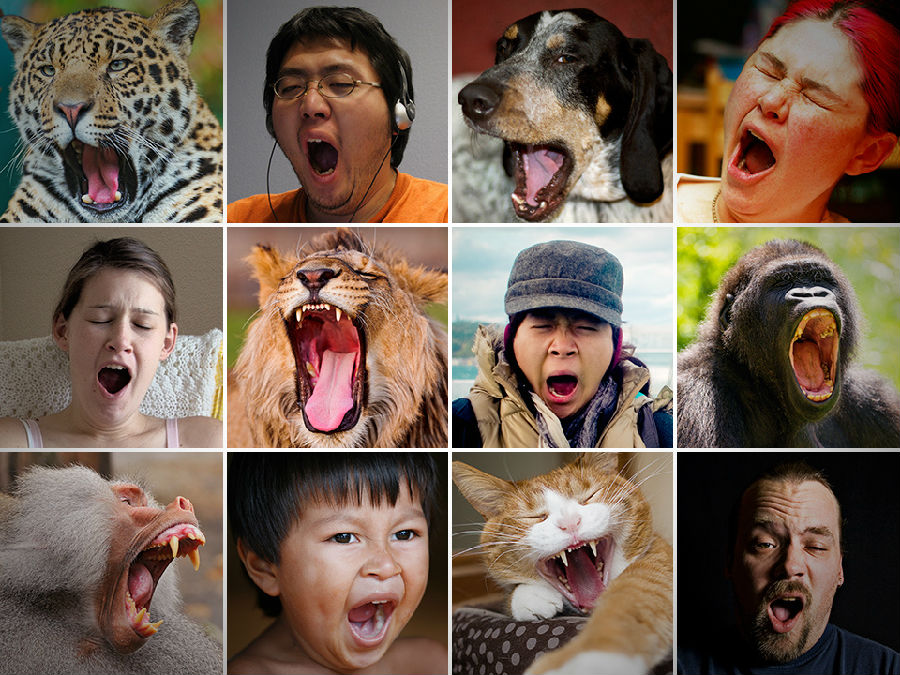Empathy is the ability to understand what someone else is feeling and partake in their emotion, a crucial ability for social animals like us.
共感是一种理解能力,它使我们体会他人的感受并融入对方的情感,这是一种对于像人类这样的社会性动物来讲十分关键的能力。
Recently, neuroscientists have found that a subset of mirror neurons allows us to empathize with others' feelings at a deeper level.
最近,神经学家发现镜像神经元的一组子集使我们能够进一步增进对他人感受的认知。
(Yawn) Scientists discovered this empathetic response to yawning while testing the first hypothesis we mentioned, fixed action pattern.
科学家们对于这种共感性哈欠的发现源自于对先前提及的第一种假说的验证中,也就是固定行为模式。
This study was set up to show that dogs would enact a yawn reflex at the mere sound of a human yawn.
这项研究是为了证明狗打哈欠的条件反射能够仅通过人类所发出的哈欠声来实现。

While their study showed this to be true, they found something else interesting.
此项研究不仅证明了这一事实,科学家们还发现了另一个有趣的现象。
Dogs yawned more frequently at familiar yawns, such as from their owners, than at unfamiliar yawns from strangers.
熟悉的哈欠对狗的影响更为频繁,比如主人的哈欠,而陌生的哈欠则不那样明显。
Following this research, other studies on humans and primates have also shown that contagious yawning occurs more frequently among friends than strangers.
随着进一步的探索,其他对于人类及灵长类动物的研究也证实了哈欠的传染性多发生在朋友而非陌生人之间。
In fact, contagious yawning starts occurring when we are about four or five years old, at the point when children develop the ability to identify others' emotions properly.
事实上,传染性哈欠在我们4、5岁时就已经产生了,因为那时的孩子已经能够正确地识别他人的情感。
Still, while newer scientific studies aim to prove that contagious yawning is based on this capacity for empathy, more research is needed to shed light on what exactly is going on.
尽管最新的科学研究致力于证明传染性哈欠是基于共感能力,但更多的研究仍在等着我们。去解释这其中真正的原因。
It's possible that the answer lies in another hypothesis altogether.
真正的答案或许就在另一个假说中。
The next time you get caught in a yawn, take a second to think about what just happened.
下次你再打哈欠时,停下来想想刚才都发生了什么。
Were you thinking about a yawn?
你是在想打哈欠这件事吗?
Did someone near you yawn?
附近有其他人打哈欠吗?
Was that person a stranger or someone close?
那个人是陌生人还是熟人?
And are you yawning right now?
还有你现在在打哈欠吗?












